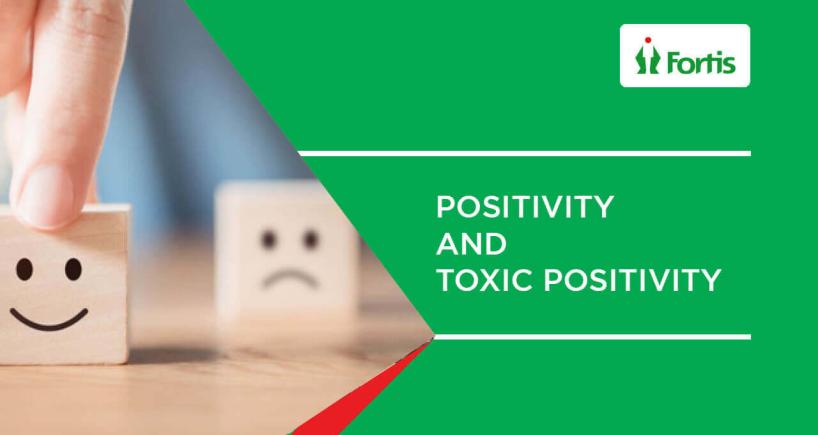
Positivity vs Toxic Positivity - Understand the Difference
What is Positivity?
What is positivity? It’s about having a positive outlook on life and its situations (challenging or not) and being optimistic about things. A positive outlook results in positive thinking, emotions and behaviours. It doesn’t necessarily mean that we need to ignore the bad aspects of life. Instead, it simply requires us to make the most of a bad situation, weighing the good and the bad and viewing people and ourselves in a positive light while being confident in our abilities.
Positivity is a concept that allows us to make equal space for both- the reality of the situation as well as for optimism and hope. It doesn’t overshadow what is happening at a given point of time or how we are feeling about it. More importantly, it doesn’t force us to create an unrealistic world where there is no place for other emotions and attitudes apart from positivity.
Having said so, it is important to understand that too much of something is always going to be toxic- even positivity. Which brings us to an important concept of toxic positivity. While we discuss this topic, it is important to understand that there is a very fine line between being positive versus being toxically positive and it is something we need to be mindful of.
What is Toxic Positivity?
Toxic Positivity is known to be a concept which tends to overgeneralize a positive outlook and state of mind. It tends to suppress the negativity and overlook the idea and feelings of stress or other not so positive emotions. When we engage in toxic positivity we often tend to minimize our own feelings and that of others which are usually negative in nature and we suppress it instead of accepting, processing and acknowledging their presence. When we are engaging in toxic positivity we often tell others:
- We should only focus on the positive aspects in a situation
- Often suggest that things could be worse or that other people have it worse than us
- Shaming someone for being negative
- Negating their experiences and expressions of negative emotions.
Doing this often invalidates how we are feeling and promotes suppression of emotions (usually negative). Having said so, suppression of the emotions will only lead to delayed recovery from the situations and our feelings. When we dismiss the presence of certain feelings, it becomes toxic and unhealthy. As human beings we are bound to feel all sorts of emotions, sometimes they are good ones and sometimes not so good ones.
However, pretending to be positive all the time really means that you are stealing the chance from ourselves and from others to experience what is bound to take place and make us feel things.
How Can We Know If We Are Being Toxically Positive To Ourselves?
- Trying hide our true feelings
- Feeling bad and shaming ourself for feeling the negative emotions
- Disregarding an experience
- Always holding a thought process which makes you devalue your experiences and give more importance to other people and their experiences
- Just thinking happy thoughts and never allowing other thoughts to enter the conscious mind
So when we respond to people, we should make sure that our focus is not purely on promoting positivity. It is equally important to welcome all sorts of feelings and offer support as required. It is imperative to use optimism and hope to drive our conversations while being mindful of accepting and validating how the person is feeling and thinking. Not only for others but for the sake of normal healthy functioning it is important that we understand and accept how we feel in certain situations. If we are engaging in toxic positivity, it's best to reevaluate our thoughts and work on them to make space for all kinds of emotions.
It will allow us to be more open minded, accepting and rational in situations rather than having a black and white thought process which only causes harm to us and to others. So let's all aim to balance the good and the bad emotions so as to embrace each and every experience of life.
Author
Counselling Psychologist



















